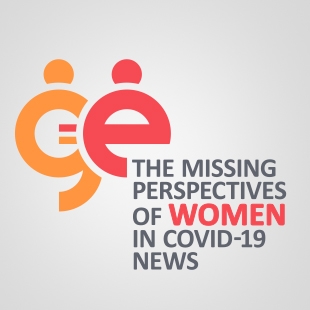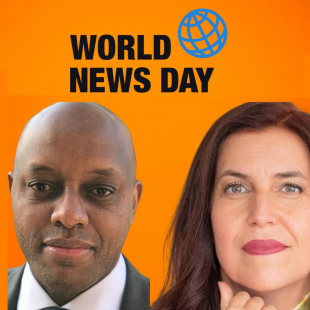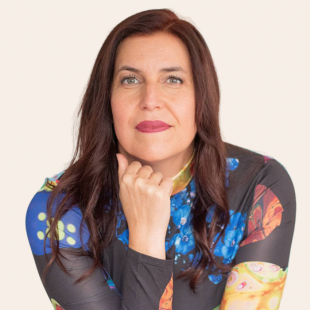The Missing Perspectives of Women in COVID-19 News

This report (which you can download), authored by Luba Kassova, was commissioned by the Bill & Melinda Gates Foundation to examine women’s representation in COVID-19/coronavirus newsgathering and news coverage in India, Kenya, Nigeria, South Africa, the UK, and the US at the height of the first wave of the pandemic. The report has examined the news coverage of the COVID-19/coronavirus story through the lenses of three indicators of gender equality: women as sources of news expertise; news stories leading with women protagonists; and coverage of gender equality issues. The insights from the report have led to the creation of 21 recommendations which aim to support news providers who wish to amplify the substantially muted voices of women in news coverage of the COVID-19/coronavirus story.
The report has uncovered a substantial bias towards men’s perspectives in the newsgathering and news coverage of this pandemic across both the global north (the UK and US) and the global south (India, Kenya, Nigeria and South Africa). This bias operates against a backdrop of women’s effective political invisibility within the COVID-19-related decision-making process in the countries analyzed and the unique socioeconomic, health and psychological challenges that women face globally.
Every individual woman’s voice in the news on COVID-19 is drowned out by the voices of at least three, four, or five men. The women who are given a platform in the COVID-19/coronavirus story are rarely portrayed as authoritative experts or as empowered individuals but more frequently as sources of personal opinion or as victims/people affected by the disease. The news coverage of COVID-19/coronavirus is mostly framed in hard factual terms, leaving little space for the human-centered journalistic approach that reflects women’s news needs more closely. Given the deeply political nature of the COVID-19 crisis, women’s structural marginalization in the political leadership roles established in response to the crisis locks in the suppression of women’s voices in the story. This in turn is reflected in a smaller news share for women, which may be exacerbated by journalists’ tendency in a time of crisis to revert back to ‘established sources’ who are significantly more likely to be men. The absence of women’s perspectives in COVID-19-related news coverage means that women have limited influence over the framing of the crisis in the news and consequently, limited influence over policymaking directions. As a result, women are at ever greater risk of being further marginalized within different societies amid the most significant global health crisis of our lifetimes.
The impact of this report has been far-reaching globally. In its first month of being published “The Missing Perspectives of women in COVID-19 News report” was picked up by news outlets, specialist media, major journalism schools & networks, women’s groups, senior politicians, government officials, foundations, international organisations, charities, think tanks, academia & authors in over 60 countries. Articles have focused on or referred to the report in The Guardian (UK), The Indedpendent (UK), El Pais (Spain), El Dario (Spain), The Washington Post, (USA), The Swaddle (India), MSN News, Yahoo, The Conversation (Global), The Print (India), CNBC in India video and article, 120 Minutes, The Nation Media Group (The Nation, Kenya), Premium Times (Nigeria), All Africa, All Naija Media (Nigeria), The New Kenyan (Kenyan), News Now (Nigeria). It has been amplified by Greta Van Susteren, Deepa Shivaram, Ed Young, Maryn McKenna, Irish Times podcast (Reference report in podcast introduction), Katie Pellico, MSN, Jen Whyntie, Ana Bernal-Triviño, Melissa Sweet, Gabriel Gatehouse, Andre Picard, Theresa Boyle and many others.
If you are a news provider who wishes to improve your representation of women in news about COVID-19, please get in touch on luba@addykassova.com.
If you would like to follow up on the topics discussed in this article, please contact Luba Kassova or Richard Addy on contact@akas.london







